|
In this episode of The Editing Podcast, Denise and Louise demystify publishing language – the terms professionals use to describe the parts of a book – so that you can talk with confidence about your text.
Click to listen to Episode 2
Summary of Episode 2 ...
Editing bites Indexing societies
Music credit 'Vivacity' Kevin MacLeod (incompetech.com). Licensed under Creative Commons: By Attribution 3.0 License.
Louise Harnby is a line editor, copyeditor and proofreader who specializes in working with crime, mystery, suspense and thriller writers.
She is an Advanced Professional Member of the Chartered Institute of Editing and Proofreading (CIEP), a member of ACES, a Partner Member of The Alliance of Independent Authors (ALLi), and co-hosts The Editing Podcast. Visit her business website at Louise Harnby | Fiction Editor & Proofreader, say hello on Twitter at @LouiseHarnby, connect via Facebook and LinkedIn, and check out her books and courses.
4 Comments
In this episode of The Editing Podcast, Denise and Louise discuss the different levels of editing, why editing is worth doing, the order of play, and how perfection is impossible in one pass.
Click to listen to Episode 1
Summary of Episode 1 ...
Editing bites
Music credit 'Vivacity' Kevin MacLeod (incompetech.com). Licensed under Creative Commons: By Attribution 3.0 License.
Louise Harnby is a line editor, copyeditor and proofreader who specializes in working with crime, mystery, suspense and thriller writers.
She is an Advanced Professional Member of the Chartered Institute of Editing and Proofreading (CIEP), a member of ACES, a Partner Member of The Alliance of Independent Authors (ALLi), and co-hosts The Editing Podcast. Visit her business website at Louise Harnby | Fiction Editor & Proofreader, say hello on Twitter at @LouiseHarnby, connect via Facebook and LinkedIn, and check out her books and courses.
If you're a new proofreader or editor, having a global mindset in regard to choosing reference resources is essential for maximizing editorial business opportunities.
Like many of my fellow editorial business owners, I’m often approached by potential new entrants to the field who want advice about getting started. One of the most oft-asked questions is: ‘Which reference resources – style guides, dictionaries and the like – do I need?'
Bear in mind that anyone you seek guidance from in regard to best-fit resources must respect the fact that you might not be from the same place as them, speak like them, have the same potential clients as them, and spell colour/color like they do, or as a client brief asks them to. Centrism, whether from the United Kingdom, the United States, or elsewhere in the world, is useless to you as a new entrant because it’s based on false assumptions about you and your potential clients.
Social science ‘styles’ from an international perspective
Here’s a wee case fictive case study. Imagine a new entrant to the editing profession tells me the following:
Based on this, I suggest that social science publishers and academics would be good initial target markets. Does my new starter’s location affect their choice of potential publishers clients? It’s not clear cut. The online world has knocked down those geographical boundaries; you don’t have to spend a fortune to send page proofs to someone hundreds of miles away; you can email them to someone thousands of miles away for the price of an Internet connection. And how does my new starter’s location in the United States more broadly affect what they need to learn in terms of styles and language preferences? Again, it’s not clear cut. I see The Chicago Manual of Style (CMOS) recommended as the sole must-have resource so often in online discussions about editorial work that I worry that new entrants may fall into the trap of thinking that this ‘bible’ alone will tell them everything they need to know. Super though it is (I love chunks of it for fiction editing), CMOS is not the be all and end all of style guides, because it depends on what a client wants, the subject matter and country-specific language preferences. The California-based publisher SAGE Publications asks that its copyeditors have a thorough knowledge of both the CMOS and the Publication Manual of the American Psychological Association (APA). But note that these are core requirements for SAGE’s US book division. If you want to freelance for the US journal division, you’ll need to add the AMA Manual of Style and The CSE Manual for Authors, Editors, and Publishers to your reading list. (Bear in mind, too, that not all publishers want us to use the most current version of these manuals.) But why stop there? If my new starter can get work with SAGE in California, might it not be sensible to tap its sister office in London? But in that case, our newbie will also need familiarity with New Hart’s Rules, The Oxford Dictionary for Writers and Editors, and Butcher’s Copyediting. Or what if our new starter decides to target social science academics who are based in the US? They'll need to ask:
Actually, it’s just as likely that an eminent Boston-based scholar will submit to the European Journal of Political Research as to the American Political Science Review, Scandinavian Political Studies, or the Canadian Journal of Political Science. This will impact on what our newbie needs to know. For example:
Location doesn’t determine readership
Where our clients live doesn’t determine where they publish or the location of their intended readership. Given that the editorial freelancing market is competitive, it makes sense to exploit the most obvious opportunities. In the Internet Age, the physical barriers are gone. The only barrier to exploring an international work stream is an inability to appreciate that language conventions and preferences differ according to client (whether that be a particular publisher, a particular independent author, a particular journal), not according to one, and only one, globally recognized set of rules. Honestly – such a thing doesn’t exist; it doesn’t even exist within many countries.
Diversity of geography, language, and preferences
It’s not so much about where we live, but where our clients live and what preferences they have.
If you're a new entrant to the field and are wondering what you need to know, instead of listening to my preferences, familiarize yourself with a number of appropriate resources depending on what your clients want. Perhaps it’s CMOS; perhaps it’s not. And even if it is, ONLY knowing this could mean you're seriously restricting the base of clients for whom you can work, the types of material you can work on, and the geographical locations you can explore. So try the following:
If your world revolves around CMOS, it’s possibly a smaller world than it needs to be. And if your world is smaller than it needs to be, so are the opportunities you're exploring in a market that’s already very competitive. One other item to note. CMOS, CSE, APA, AMA, and the like are style guides; they give you guidance on whether, for example, to close up or hyphenate a compound adjective. They won't necessarily give you extensive guidance on how a word is being used, and whether that usage is considered standard, and in which community. Usage manuals, which give that kind of information, are as important as style guides. Using a style guide or a usage manual alone is an invitation to disaster.
Out with borders and in with flexibility
When you’re the owner of an editorial business you need to learn what your clients want you to learn, whether it’s a manual published by Chicago or Oxford, a house brief designed by a team of publisher project managers, a detailed set of guidelines issued by a European NGO, or a short brief issued by an independent author of fiction. I encourage you to think broadly, globally, and flexibly. If someone tries to guide to towards only one set of ‘rules’, at best their advice will restrict you; at worst it will be just plain wrong or inappropriate. There is, alas, no simple answer to the question of which resources are best. Instead, careful thought and planning centred around client- and skill-focused research is a good first step. That way, you’ll learn for yourself what resources, tools, and knowledge bases are suitable for you, your potential market, and your particular business model. Language usage, styles, and preferences differ – and that’s okay. Don’t let anyone tell you that’s not the case!
Louise Harnby is a line editor, copyeditor and proofreader who specializes in working with crime, mystery, suspense and thriller writers.
She is an Advanced Professional Member of the Chartered Institute of Editing and Proofreading (CIEP), a member of ACES, a Partner Member of The Alliance of Independent Authors (ALLi), and co-hosts The Editing Podcast. Visit her business website at Louise Harnby | Fiction Editor & Proofreader, say hello on Twitter at @LouiseHarnby, connect via Facebook and LinkedIn, and check out her books and courses.
This article offers guidance on how to self-edit your fiction writing so that accents don’t become the primary story.
Do your characters speak with an accent? All of us speak in ways that are distinctive; we just don’t notice our own accents because they’re ours and we’re used to them.
Oxford Dictionaries defines accent as ‘A distinctive way of pronouncing a language, especially one associated with a particular country, area, or social class.’ Authors who are inexperienced at writing accented language can be tempted to use phonetic spelling. But writing accents is difficult; so is reading them. Most experienced authors and editors will therefore caution against this approach. Furthermore, spelling and pronunciation are two different things. Says Beth Hill in The Magic of Fiction (pp. 409, 394):
‘All English speakers would spell the words in the sentence you’re reading the same way; they just might pronounce them differently. [...] Dialogue is a report of the words that are spoken, not a visual of how they’re spoken. Show the how through means other than odd or phonetic spellings.’
Avoiding the inexperienced-ear trap
My husband was born in Belgium. He speaks fluent French. My friend Alain was born in southern France. He also speaks fluent French. They can hear strong differences in their pronunciation. Alain knows that Johnny’s accent is Belgian though he can’t tell what part of Belgium Johnny was born in. Johnny can tell that Alain is from France, and can even identify that he’s from the south, but not where in the south. I have enough French to get by, but it’s limited. When I hear Johnny and Alain speaking French to each other, I can’t hear the difference in their accents because my ear isn’t experienced enough. I also have friends and family from Yorkshire, England. To me, their accents sound the same, but I know they’re not. Nor are the turns of phrase they use. That’s because people in Yorkshire don’t all speak the same, even if those of us with inexperienced ears think they do. And I don’t speak identically to every other person born in Buckinghamshire, or use the same turns of phrase. And there’s the first problem. The ways accents are rendered by a writer will be influenced by their experience of that accent. If their experience is limited, any attempt to mimic it in writing could seem absurd to a reader with a more experienced ear. It could even turn into parody, and a bad one at that. Consider how much we’re influenced by others. Many of us talk to and listen to voices from all over the world. Speech is elastic and we often borrow from each other – not just words and phrases but pronunciation too. What each of us defines as accented, or not accented, will depend on where we’ve been, who we know, and what we’ve heard.
When phonetic spelling trumps story
Conveying accents through phonetic spelling can lead to phonemes trumping action. Here’s a mangled example of a French person speaking English. The spelling is phonetic:
Ze corpse was found in ze woods zis morning. ’Ow did zat ’appen? Ze area was checked only yesterday. Sumsing iz wrong ’ere.
If the protagonist detective is French, and every time she opens her mouth this is what we have to read, our focus won’t be on the plot. The most important thing about the sentence above is what it tells us: a corpse was found in a section of the woods that had been given the all-clear. Which means either the area wasn’t cordoned off and guarded, or the team didn’t check the area properly. That’s not what the reader will be focusing on. Instead they’ll be digging their way through a multitude of zeds. It’s a distraction that pulls the reader out of the story. Plus, we need to ask whether that phonetic spelling renders the speech authentic. I’d argue it’s a horrible inauthentic caricature that has no place in any work of fiction that isn’t intended to mock. My friend Alain mastered the th phoneme within a few weeks of living in the UK. Yes, his English was – and still is – accented (just as mine is to others), but if he was my detective, the most realistic way I could render this line in his mouth would be:
The corpse was found in the woods this morning. How did that happen? The area was checked only yesterday. Something is wrong here.
Which is just like I’d say and spell it in English. And so would my Scottish friend Denise, and my Canadian friend Janet, and my American friend Carrie, my German friend Nicole, my Yorkshire-born friend Helen ... you get the picture. We all have different accents, but conveying them with phonetic spelling is distraction not enrichment. Deliver what you promised and what’s interesting If your reader thought they were buying a mystery, a thriller, a romance or sci-fi opera, they might be disappointed to find out they’re reading something else. Lessons in how your Dutch, Indian, Welsh or British protagonist or transgressor pronounces words are not what they paid for. Furthermore, is your character’s accent really their most interesting trait? That they’re from a particular region or country might be enriching backstory. It might even play into the plot line. But is their accent key to the story? If it’s not – if it’s no more relevant than how they take their coffee – it needn’t go on the page, and if it does, it need only be in passing.
Respect your audience now, then and from wherever
There’s more than one way of speaking English. Just because I speak in a certain way, doesn’t make it standard. It’s just my way of speaking. But there’s a bigger problem. Seeking to render pronunciation ‘authentically’ can reinforce discrimination:
‘A stereotypical rendering of regional accent or dialect based on racial, cultural or ethnic "difference" could cause offence. Accent and dialogue in fiction may perpetuate harmful stereotypes. The simple-talking so-called "native" features strongly, for example, in fiction of past eras that either consciously supported or failed to question supremacist projects of conquest and domination.’ (Now Novel)
Writers need to examine their own biases (however unintentional) when they convey accents, and other characters’ perceptions of them. Plus, at the very least, overworked or badly done written accents can sound like mockery. And even if you think your writing is amusing, your reader might not. Years ago, I worked on a book in which the protagonist – for whom we were rooting – mocked his German arch-enemy for his ‘ridiculous’ pronunciation of a w as a v when speaking English. Actually, it was the protagonist and the author who ended up looking ridiculous because there is no ‘correct’ way to pronounce a w that can be universally applied across the planet. If one character’s mockery of another’s accent is central to the plot, that might be an opportunity to introduce phonetically spelled written accents briefly, but it will be a device that shows the mocker as ignorant and closed-minded. If that’s not your intention, and it doesn’t drive the novel forward, don’t include it. Make things easy for your reader The best novels make us forget we’re reading them. We’re so immersed in the story that we don’t notice we’re processing words on a page. Every time a writer forces us to decipher how a word sounds, they risk dragging us out of their book. If a book is littered with accented narrative and dialogue, we might not even get to the immersion stage. Say Mittelmark and Newman (p. 151):
‘No matter how good an ear you have, and how perfectly you’ve captured it, it soon becomes a task to read. The reader is forced to sound out each word, like somebody studying ESL, and will soon grow impatient. Instead, one or two well-placed words sprinkled throughout are enough to flavour the whole thing.’
‘Ah, but what about Irvine Welsh?’ you might say. This review on Goodreads reflects my own experience of Trainspotting:
‘I must have read the first page of Trainspotting more than twenty times since purchasing the book years ago, and each time I would put it back in fear of all the Scottish dialect. There's no point lying, this is a challenging novel. Sometimes you have to read things twice or pause to think about them to fully understand what’s being said. But, unlike a lot of books that are difficult to read, this was ultimately rewarding and once you get used to the slang words it becomes a very gritty, moving and funny read.'
Yes, he’s a great writer and it’s a great book, but I found it hard work. And I’m not always in the mood for hard work. I read for relaxation. If you think your audience is like me and this reviewer, think twice about whether you want to go down this route. Plus, it’s unlikely that any writer will be able to pull off what Welsh does if they’re writing accents and dialect that aren’t their own.
Other ways to convey accent – light flavouring
‘When doing any kind of accent, whether regional dialect, foreign accent, or a characteristic like a lisp, it is important to remember that a little goes a long way.’ (Mittelmark and Newman, p. 151)
So how might we gently nudge the reader to imagine a character’s accent in a way that avoids literally spelling it out? Here are 6 ideas: 1. Snippets of another language If the character’s from another country, you could add in a few of their native-language words here and there. Agatha Christie peppered her Poirot novels with mais ouis and mon amis (and Sophie Hannah has followed that style in her Poirot continuation mysteries). Christie didn’t go over the top though, and nor does Hannah. In Closed Casket, Poirot speaks at length, sometimes over several pages, and there’s no hint of a non. Less really is more. You could also introduce words from the character’s original language in moments of stress. Bear in mind, though, that lots of swear words (e.g. fuck) have an international appeal, so even a non-native English speaker might prefer this over their own language. I confess to being a little bemused when I read Poirot’s French snippets. He speaks English fluently, as this short excerpt from The ABC Murders (p. 3) demonstrates:
‘C’est vrai. To grow the vegetable marrows. And immediately a murder occurs—and I send the vegetable marrows to promenade themselves to the devil [...]'
The French therefore seems a little out of place. Poirot is able to use metaphor artfully, yet reverts to his native language for a simpler phrase. To some readers it will look a little contrived and old-fashioned. Still, it’s Christie, and she published this book in 1936. Fair enough. That doesn’t necessarily mean it’s right for your contemporary novel. 2. Noticing another’s accent Another character might notice someone’s accent – perhaps a Brit enters the scene in a novel set in the US, and the American protagonist notices the way they pronounce a hard t. In this case, it’s an observation that tells us something about the Brit’s voice, and from then on the reader can imagine their idea of how that would sound. No more need be said about it. This approach is best done early on. A character might frame another’s accent in terms of thoughts about how they themselves struggle to roll an r with the ease that the Parisian they’re listening to does. Or your character might convey another’s country of origin by pointing out how excellent their English is and how, for example, their Swedish or Russian accent is barely discernible. 3. Idiom and localization Localized or idiomatic words and phrases can also provide triggers for a reader that help them imagine accent. So perhaps your visiting Mancunian momentarily throws the people they’re hanging out with in Baltimore when they use the terms pissed or pants. And a character could identify another’s accent in the narrative by way of appreciating it. Again, it gives readers just enough information to do their own imagining. Check with people in the know if you use this approach. Say Mittelmark and Newman (p. 107):
‘When you use idioms incorrectly, it makes you sound as if you come for a different culture than the reader, and possibly a different planet.’
However, this warning might be something you can use purposefully if it’s suitable for your plot. 4. Contractions and dropped consonants You could sprinkle the dialogue with just a few dropped consonants or contractions to convey accent (’appen, innit, ain’t, nowt, t’other). Again, less is more. It shouldn’t stand out more than the story. 5. Grammatical structures that trip in translation Learn about other regional and grammatical structures that you could introduce once in a while. Says Now Novel:
‘Take the example of Russian immigrants to English-speaking countries. In the Russian language, there are few auxiliary verbs (verbs such as the verb “to be” or “is” are inferred from context). Thus errors such as “he good man” (for “he is a good man”) or “you go work tomorrow?” occur.’
Still, take care not to overdo these to the point of caricature and cliché. 6. Stories from other places Bring in other details that characterize a person’s place of birth – a detail about the environment, culture or food preferences, for example. Some years ago I was in Oslo in winter. I was cold and commented on the woeful weather to my friend. He replied: ‘Here in Norway, we say there’s no such thing as bad weather, just inappropriate clothing.’ Another half-Norwegian friend (I know quite a few Norwegians!) once told me about one of her favourite childhood snacks, Svolvær postei (it's a kind of fish paste). We scoffed our way through several tins of the stuff one delicious afternoon. That, not her pronunciation, is what sticks in my mind when I think of her Norwegianness. For the novelist, those kinds of small details might be a more enriching way of conveying a person’s heritage than butchering the spelling of their dialogue.
Why focus on that accent?
One final thing to consider is why you would focus on one character’s accent and not every other’s. Remember, everyone speaks with an accent, whether our own ears recognize it as such or not. So imagine you’re an American living in the US. You’re in a cafe. Most of the people around you are from the US and pronounce words the way Americans do – which is to say, differently but broadly with an American accent. You don’t notice this because these accents are familiar to you. Then four Brits join your table and begin to speak. You notice their accents because they stand out for you. However, the four Brits think their accents are uninteresting because they’re familiar with their own pronunciation. Your American accent is the one that stands out. Now imagine that cafe is your novel and the people are your readers. What’s interesting – what stands out – depends on who’s doing the listening. The contemporary reader watches movies and TV, and listens to radio and podcasts. All of us are exposed to multiple voices and accents. We're used to noticing them, absorbing them and moving on. When I’m reading Ian Rankin’s Rebus novels, which are set in Scotland, I’m not given frequent reminders that the primary characters speak with Scottish accents. When I’m reading Harlen Coben’s Myron Bolitar novels, which are set in the US, I’m not told that the characters speak with American accents. Why would the authors made a big deal of a Belgian, Indian, Swedish or British accent but not a Scottish or American accent? That’s not to say it wouldn’t be interesting to know where those people come from if that’s relevant to the story, and it might serve to ground the viewpoint character’s perceptions of their own nationality and pronunciation, but it wouldn’t excuse phonetic renditions of people talking differently. Consider, therefore, whether it’s necessary to make an issue of one of your character’s accents just because their pronunciation stands out to your ear when you’ve been happy to ignore the ‘home’-accented voices in your book. Any mention should be purposeful. Summing up It isn’t necessary to write accents. There are other more interesting ways to show where someone’s from. Focus on the story you’re telling and how you’re going to move it forward rather than worrying how the speakers pronounce their vowels and consonants. If you give the reader a little background and a light peppering, they can do all the imagining for themselves. If you still feel compelled to convey accents in your fiction, do so purposefully and sparingly, especially if they’re accents that you’re not familiar with. And watch out for caricature, parody and bias. Cited works and related resources
Louise Harnby is a line editor, copyeditor and proofreader who specializes in working with crime, mystery, suspense and thriller writers.
She is an Advanced Professional Member of the Chartered Institute of Editing and Proofreading (CIEP), a member of ACES, a Partner Member of The Alliance of Independent Authors (ALLi), and co-hosts The Editing Podcast.
Here are 5 things you can do in the year ahead to put a shine on the way you run your editing and proofreading business,
1. Be the editor who says, ‘It’s down to me’
Editors who work in-house edit. As for the other stuff, someone else does that for them – marketing, accounting, branding, heating the building, providing a good-quality office chair ... all of it. Employee editors can say, ‘It’s not my job.’ Independent editors can’t. Most indie editors don’t have assistants, in-house accountants, IT managers, marketing departments or ready-made brand strategies. All of those things are down to us. If we don’t make them part of our job, we risk not being able to put food on the table, not paying our bills, breaching our legal responsibilities, working in an environment that’s physically unfit for purpose and, worst of all, having no clients. And we have to buy our own chairs. Chairs aside, having no clients means we’re not independent business owners. It means we’re unemployed. There are bits of my job I’d rather not do. You’re probably the same. I happen to love the marketing side of things but I have friends who loathe it. One of my editor pals gets a kick from using gadgets and spreadsheets that help her manage her invoicing; I find it a bore. That’s fine – we’re different. However, we both must find clients and track our financials, whether we struggle with these tasks or relish the challenge. Being an editor is not enough. Being an editor is the work we do. Everything else is the work we do to get the work we do and operate in a professional manner. Editing is only one part of being an editorial business owner. For our businesses to thrive, we must do all the parts. We can’t afford to say, ‘But I don’t like marketing’, ‘I’m not good with spreadsheets’, ‘I’m not interested in the business end of things’, or ‘I don’t have time to learn how to do those things’, because we’re not employees. We have to say, ‘It’s down to me.’
2. Make changes
No one gets it perfect right from the get-go. Running a business is about testing and tracking so that we discover what works and what doesn’t. If things aren’t going as we hoped, we need to be ready to invest in change.
Easy to say, harder to do, I know. But change we must. The responsibility lies with us.
EXAMPLE
All businesses change. For example, a publisher might outsource production to another country, squeeze more words on a page, ask freelancers to do more for the same money, or freeze its project fees, all of which have an impact on profitability for the independent editor working for that publisher.
‘And it will reduce the quality,’ some editors say. Maybe not, maybe so. That’s not our problem. It’s theirs. They’re business owners and so are we. All of us do what we need to do to make our enterprises successful.
If we don’t like the way a client's operating, we should take positive action to find a replacement. It's not the client's job to make another business owner's enterprise successful. It can be tempting to use online spaces – Facebook groups, for example – to vent our complaints. However, that’s a waste of precious time that we could be using to locate our new client. Action for change trumps blame every time. 3. Don't measure your own success against other people’s raw data Track your own data and use it to assess the health of your editing business. Your colleagues’ metrics don’t matter because those relate to their businesses, not yours. And there’s another problem – it’s often like comparing apples and oranges. Here are two examples:
Does that mean you shouldn’t look at analytics? Not at all. But instead of looking at just the raw numbers, think about longer-term patterns in the data and outcomes (bookings/sales). How does this financial quarter compare with the previous one, or this year with the previous one? Have you made changes either on your website or elsewhere that might have influenced your analytics?
We must keep our attention on the end goal. Visitors, page views, shares, likes, follows, comments, connections etc. are only starting-point visibility indicators.
To be meaningful, they need to be considered over time and evaluated within the context of, and measured against, business goals: e.g. requests to quote, confirmed bookings, quality of clients, income, and the length of your wait-list. Otherwise, they’re nothing more than vanity metrics. As for other people’s raw stats, they tell you nothing about your own business’s needs and goals. Don't spend valuable time worrying about them. 4. Track, plan and schedule Like all sole traders, independent editors have to do everything themselves, unless they contract out services to, say, a VA, a marketer or an accountant, any of which will incur costs. We can find ourselves being asked to carry out impossible feats of juggling – too many activities and not enough time to do what must be done. The solution could lie in improved scheduling: (1) Track how much time you spend on social media during work hours and check that all of it is relevant to your business. Be strict with your social engagement – schedule it, and stick to that plan. You’ll save time and be more productive.
EXAMPLES
(2) Schedule all tasks, not just editing. Invoicing, marketing, replying to requests to quote, and dealing with queries can cause problems when they’re not scheduled. If you have 7 hours a day available for work, allot some of that time to stuff that enables you to run your business. That might mean you only have 5 hours a day available for editing, not 7, which means you’ll need to assign a longer period of time to complete each project. If you need to shift things around, fine – there’s a big difference between drinking your tea at a different time and forgetting to switch the kettle on.
EXAMPLE
When Denise Cowle and I decided to set up The Editing Podcast, we knew the pre-launch work would have to be squeezed into our already busy business and personal schedules. This was a new venture, one that would run on top of our existing business activities, not instead of them. It would have been easy for either of us to say, ‘I don’t have time – let’s do it in the next couple of weeks. I’ll call you when I’m free.’ We knew this would be a disaster, that it would lead to procrastination and delay. 5. Create templates and information resources Templates make life easier and help editors work faster. They can be customized, of course, but the underlying framework is in place, meaning we can focus on tweaking the nitty-gritty so that what we’re creating is specific to the recipient. The following all lend themselves to templating:
When we find ourselves explaining the same problem to different clients, it’s time to create a resource that we can use indefinitely. For example, if you’re a developmental editor you might have written numerous reports and queries in which you describe the fundamentals of narrative point of view. Instead of repeating yourself, create a document that outlines the principles in detail. The initial work will take you time, but once done you can use it over and over. You can also place that information on your website and use it as a promotional tool.
EXAMPLE
I’m a specialist sentence-level fiction editor. Many of my clients are first-time authors who struggle to punctuate dialogue, use apostrophes correctly, and render thoughts consistently in their writing. When I’m creating the handover editorial report, I don’t include long explanations about why and how I fixed these problems. Instead, I alert clients to the issues in brief and link to the relevant booklets on my website. I’ve shaved hours off my report-writing time and repurposed the resources for business promotion. Summing up If you’re looking for ways to make your business life run more smoothly in the next 12 months, perhaps some or all of these 5 tips will help you to save time, increase productivity, and take action. There are some free templates and other resources in the Further Reading section below. Help yourself. Happy New Year! Further reading
Louise Harnby is a line editor, copyeditor and proofreader who specializes in working with crime, mystery, suspense and thriller writers.
She is an Advanced Professional Member of the Chartered Institute of Editing and Proofreading (CIEP), a member of ACES, a Partner Member of The Alliance of Independent Authors (ALLi), and co-hosts The Editing Podcast. Visit her business website at Louise Harnby | Fiction Editor & Proofreader, say hello on Twitter at @LouiseHarnby, connect via Facebook and LinkedIn, and check out her books and courses. |
BLOG ALERTSIf you'd like me to email you when a new blog post is available, sign up for blog alerts!
TESTIMONIALSDare Rogers'Louise uses her expertise to hone a story until it's razor sharp, while still allowing the author’s voice to remain dominant.'Jeff Carson'I wholeheartedly recommend her services ... Just don’t hire her when I need her.'J B Turner'Sincere thanks for a beautiful and elegant piece of work. First class.'Ayshe Gemedzhy'What makes her stand out and shine is her ability to immerse herself in your story.'Salt Publishing'A million thanks – your mark-up is perfect, as always.'CATEGORIES
All
ARCHIVES
July 2024
|
|
|
|


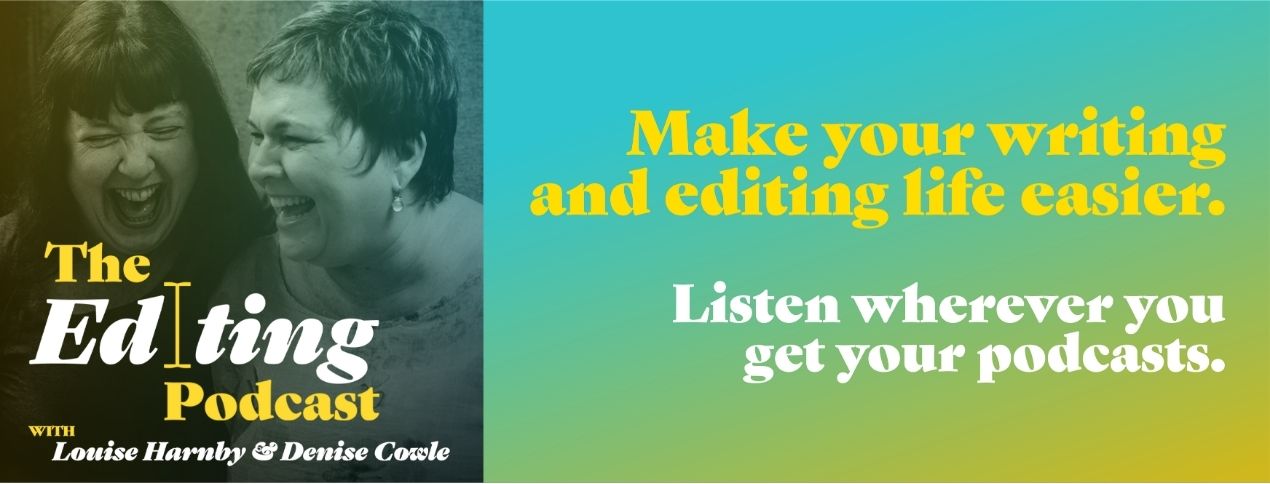
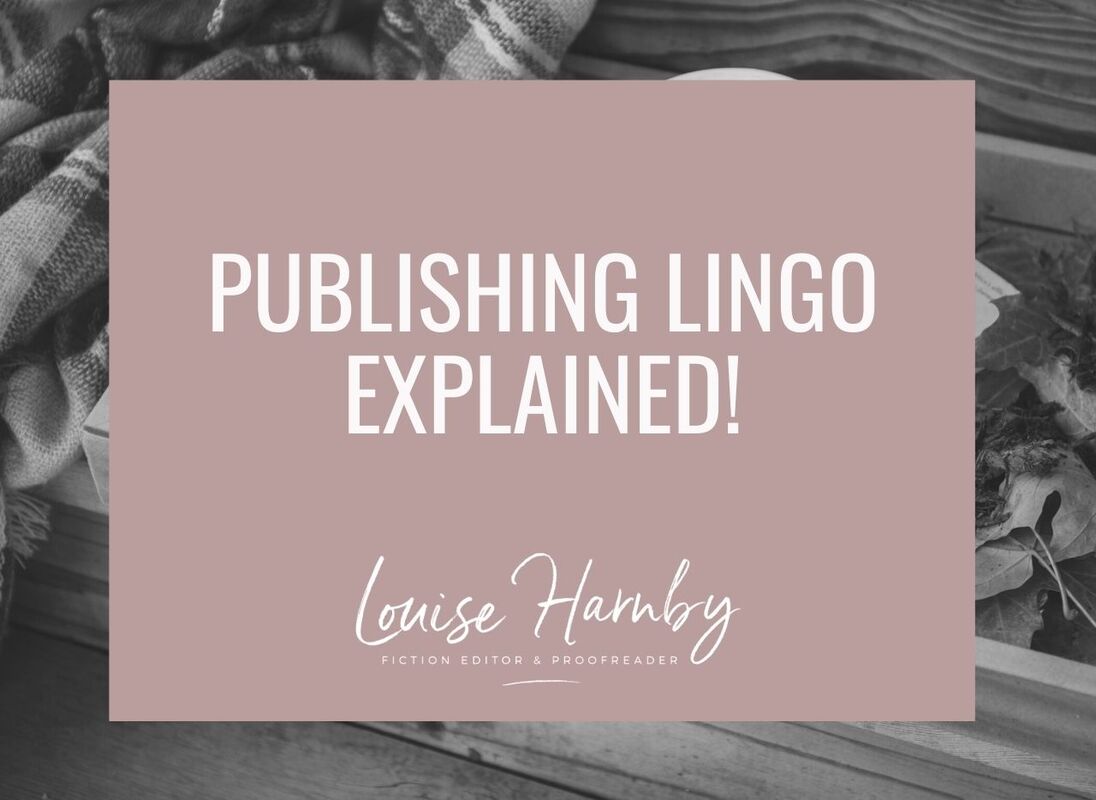
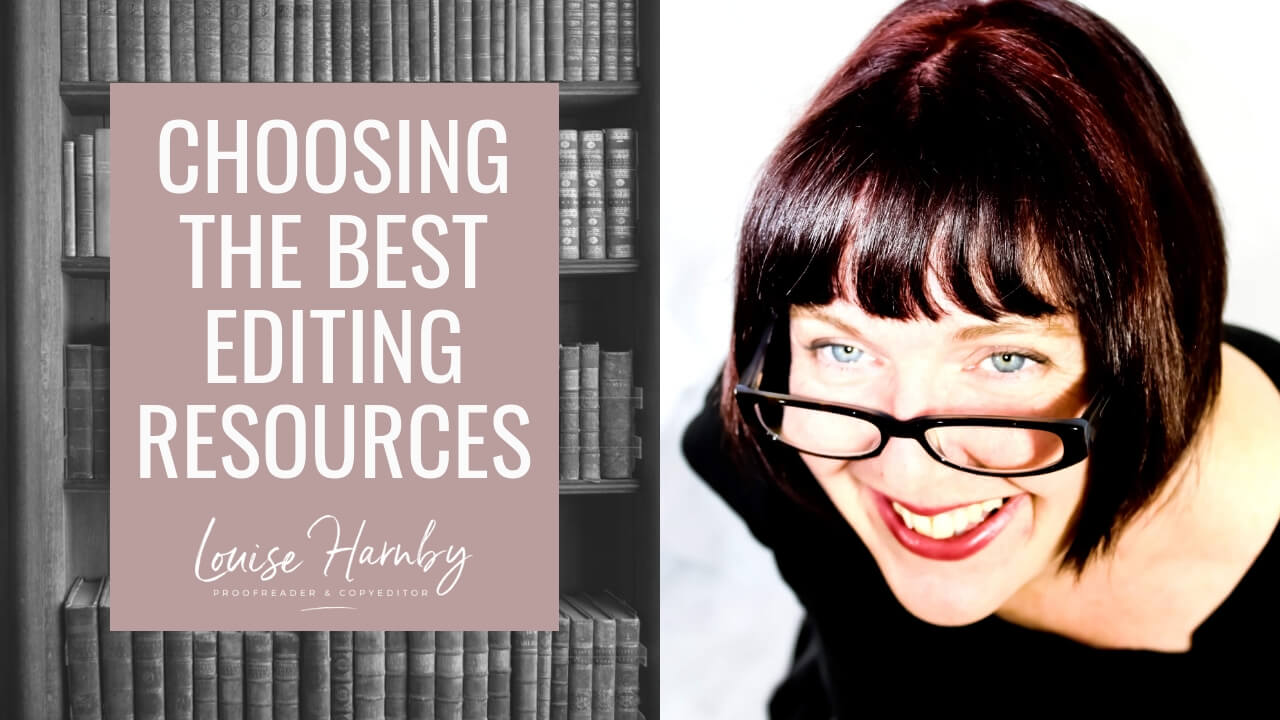
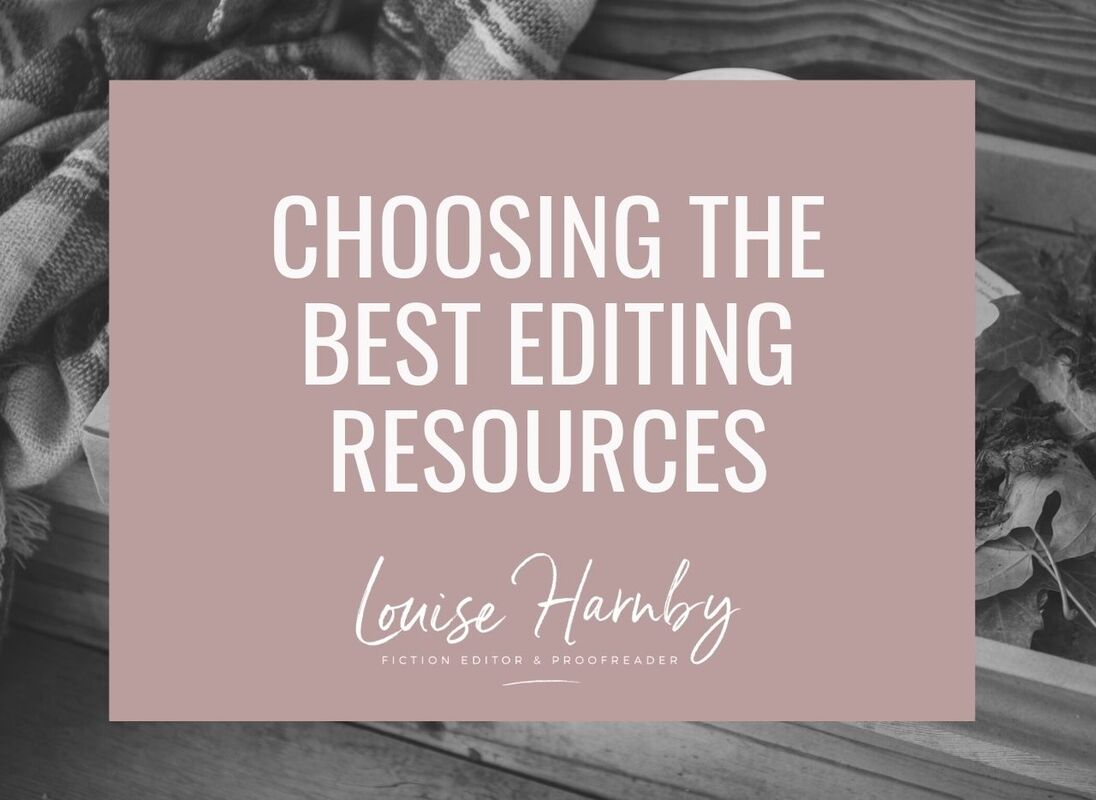

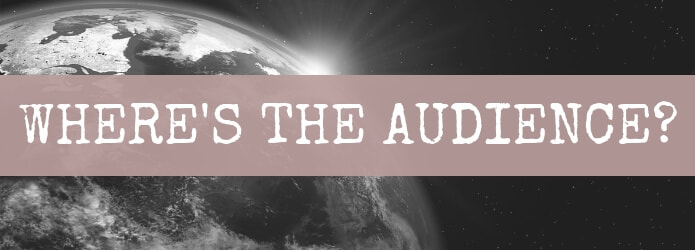

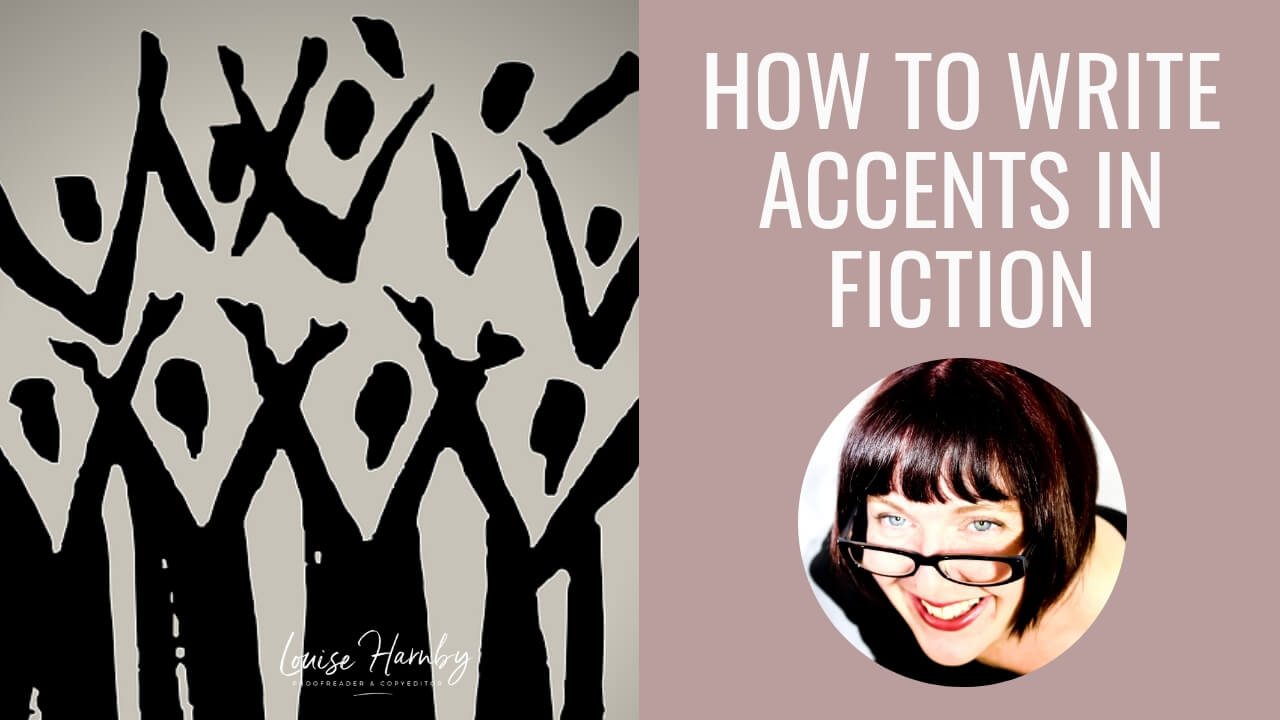






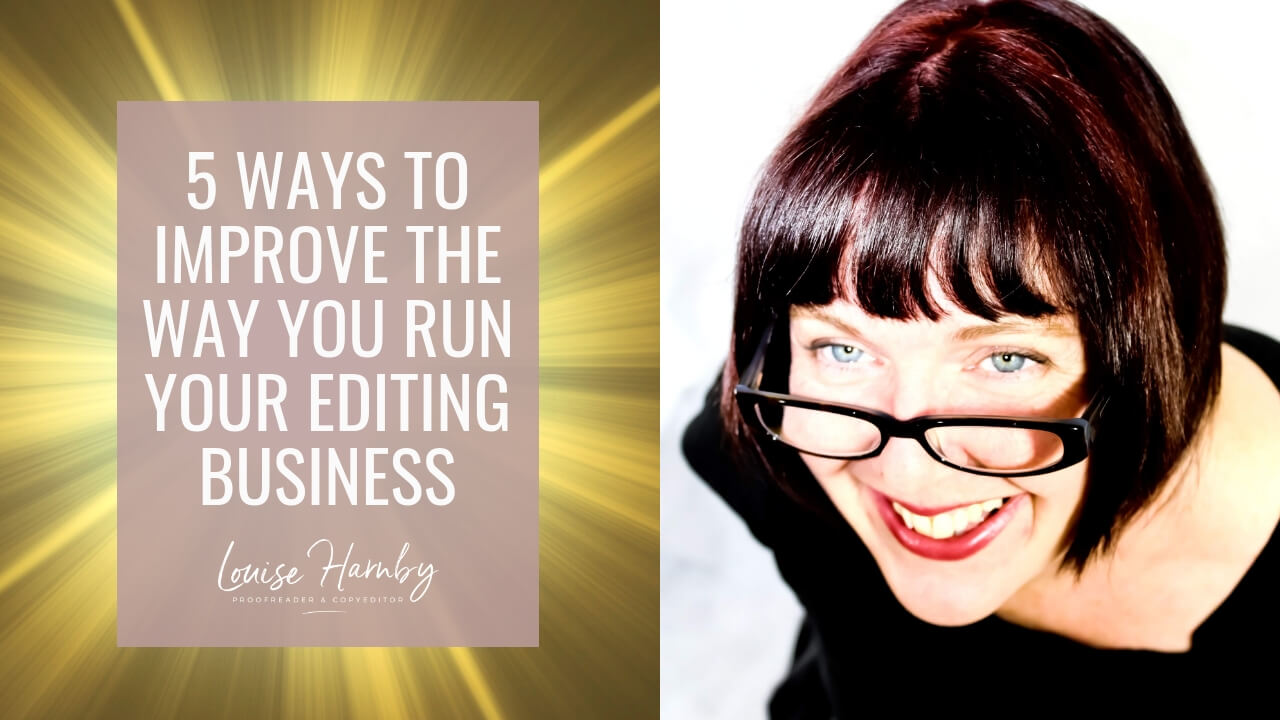


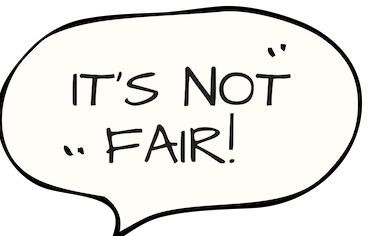

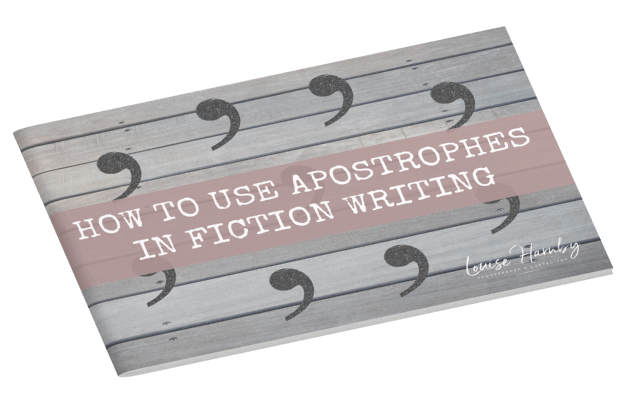
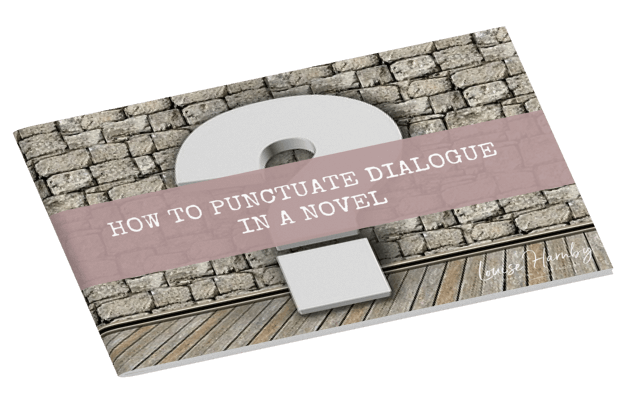
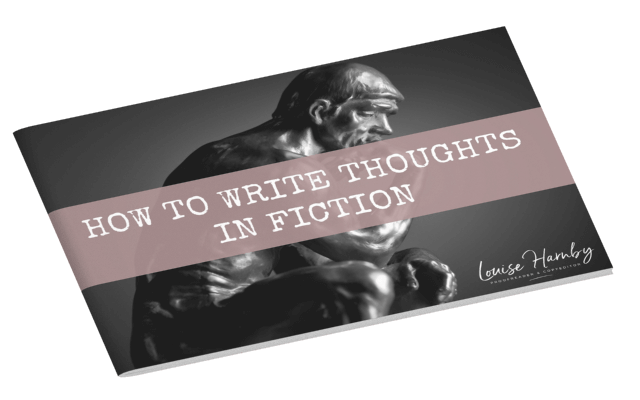













 RSS Feed
RSS Feed





